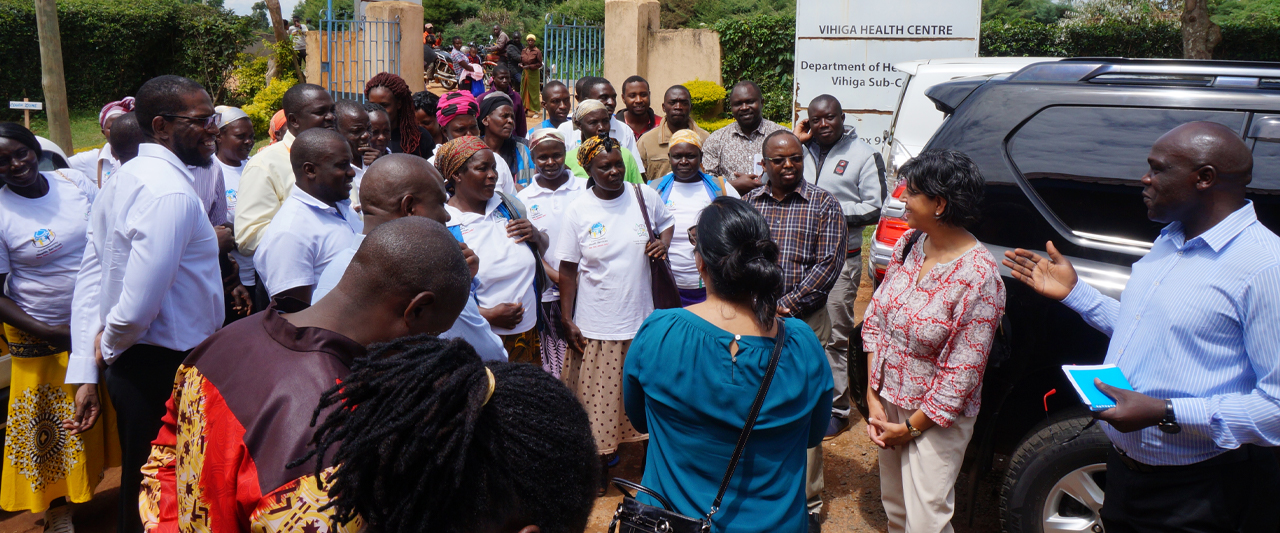By Anu Kumar
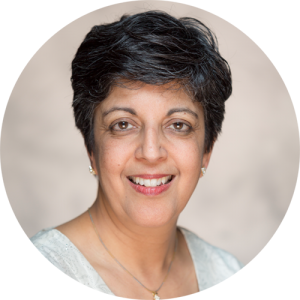 We’re a month into a new decade, but as I reflect on the last few months of 2019 and consider the changes of the last few years, I am struck by how some things stay the same—like Ipas’s vision for a future where every woman and girl can determine her own future—and how some things have gained momentum—like the fight for safe abortion care in Kenya.
We’re a month into a new decade, but as I reflect on the last few months of 2019 and consider the changes of the last few years, I am struck by how some things stay the same—like Ipas’s vision for a future where every woman and girl can determine her own future—and how some things have gained momentum—like the fight for safe abortion care in Kenya.
We want to end unsafe abortion; it’s a big goal. Nearly 25 million women risk their lives with an unsafe abortion, and nearly seven million women go to the hospital in countries in the global south each year as a result of complications. But we and our partners know what needs to be done: we must reform abortion laws; improve access to contraception and safe abortion care; increase access to medical abortion, including self-managed abortion; work for gender equity; and reduce barriers, like abortion stigma.
As 2019 was wrapping up, I traveled to Kenya, and my commitment to these goals was deepened by what I saw: the hard work and dedication of health workers, advocates and young people in ensuring that women and girls have the information, support, education, and ability to fully realize their potential.

I was thrilled to take a quick trip from Nairobi to Kisumu with our Africa Alliance Director, Dr. Ernest Nyamato. We began the day just after dawn, traveling to Vihiga County, where we met with several contacts from the County Health Management Team. Vihiga County has roughly 500,000 residents spread across five sub-counties, all served by 25 health facilities. In Kenya, it is the counties (some 47 of them) that determine their local health budgets, allocations, as well as implementation of health programs, policies and human resources; so they have a huge influence on the lives of residents.
At the Vihiga County Health Centre, Administrator Zena Anindo (at left, above) shared that often women come to this clinic seeking abortion because of unintended pregnancy and/or because they’ve experienced gender-based violence. During our visit, we were greeted by an enthusiastic group of community health volunteers (CHVs), 150 of them were about to be trained on how to provide sexual and reproductive health information, including on safe abortion care.
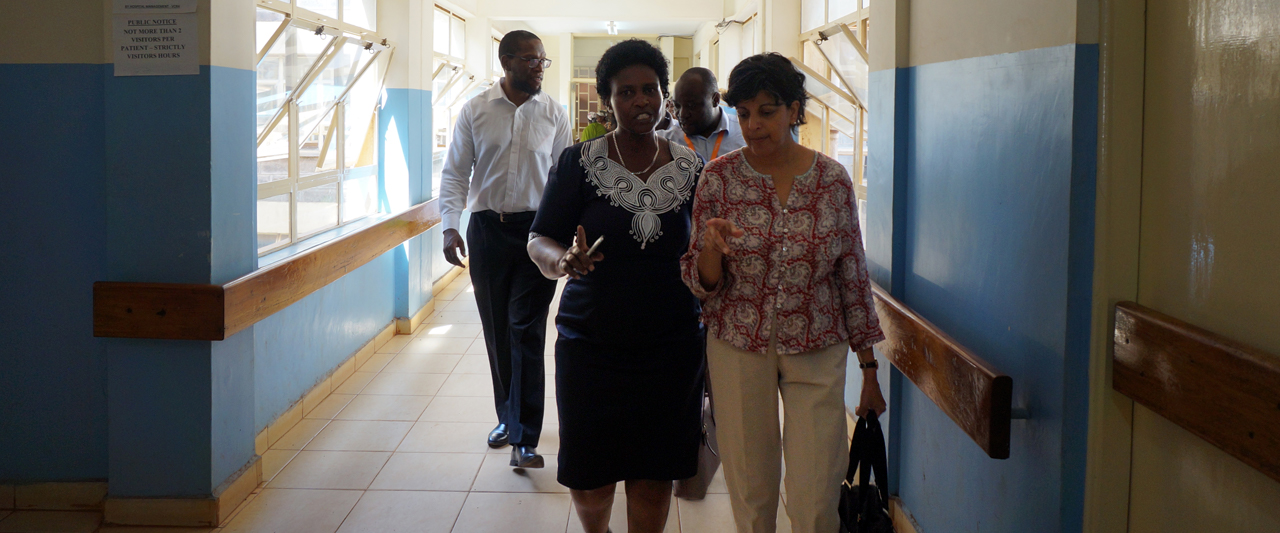
At the Vihiga County referral hospital, Veronica Musiega, (at center, above), county reproductive health coordinator, said that there are about 70 comprehensive abortion care providers in the county. She’s one of them—having been trained many years ago by Ipas board member and midwife Monica Oguttu, who founded and runs the Kisumu Medical and Education Trust (KMET) in Kenya. KMET works in underserved communities to promote maternal, child and family health, and operates in 35 of the 47 counties in Kenya. Veronica proudly showed me the room where women receive abortion and contraceptive care. It was clean, well-lit, and had all necessary equipment thanks to Ipas’s partnership with the facility.
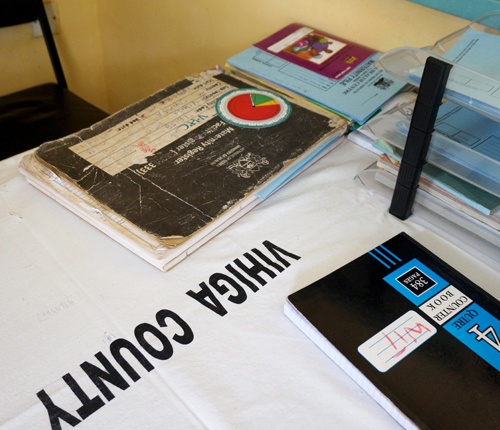
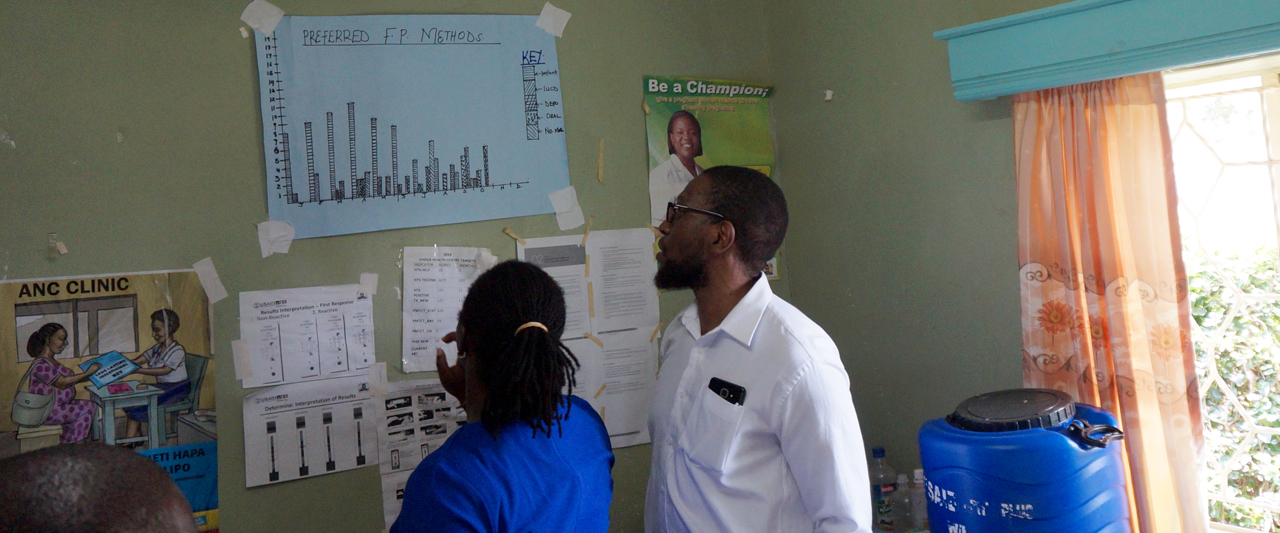
In the maternity ward at Vihiga County Health Centre, women come for contraceptive, abortion, prenatal and maternity care. All of these services are critical components of reproductive health care—that is, of health care. Here, Zena Anindo shows Dr. Nyamato the contraceptive methods women prefer at this centre. Note the Ipas gestational wheel above—a tool used by providers, and in some places women themselves, to determine whether abortion with pills is an option.
Putting abortion on the agenda
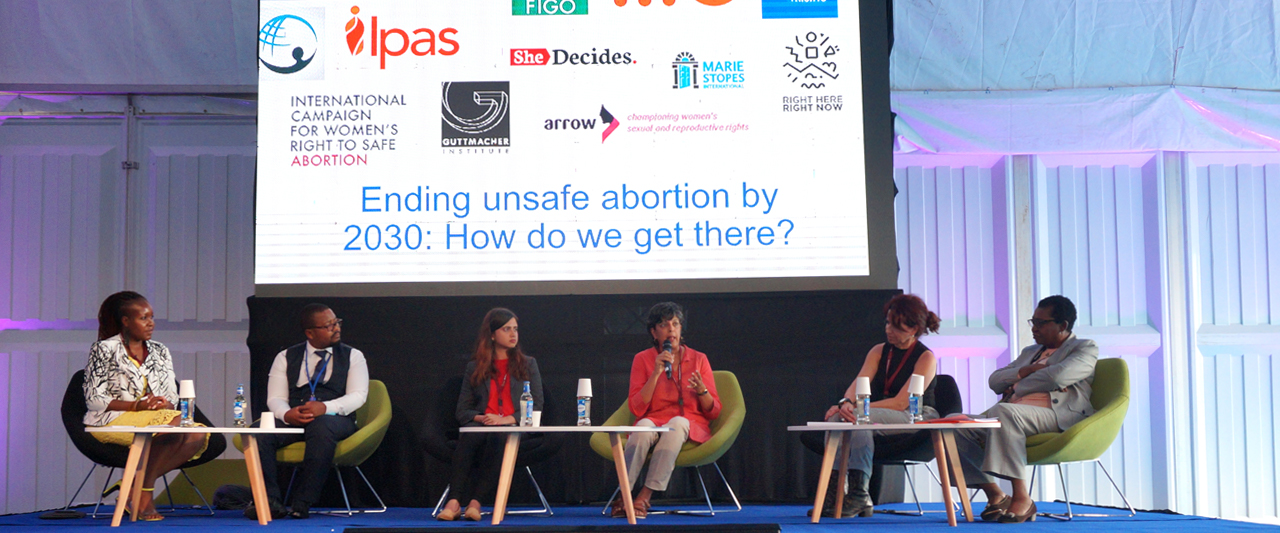
The Nairobi Summit on ICPD+25 had a lot of meaning for me, having been at the International Conference on Population and Development held in Cairo in 1994. The Cairo meeting was where 179 governments made women’s sexual and reproductive health and rights a priority goal of global development. This was an important anniversary and a summit full of big ideas and big thinkers on maternal health. Above, I’m talking about the importance of abortion care in emergency and humanitarian settings and overall why we can’t talk about health without talking about abortion. Though this session was standing-room only for hundreds of attendees, I was disappointed to find only a handful of sessions with the word abortion in the title—even in our own field, abortion stigma is evident.
Anti-rights actors, including the U.S. government, tried to disrupt events by holding a concurrent conference, organizing marches, and by declaring their objection to sexual and reproductive health and rights, particularly abortion. Thankfully, their protests did not detract from the summit’s purpose, nor put a damper on the strong call for abortion access—as evidenced by the more than 350 signatories to the Global Declaration on Abortion we drafted with partners. Because abortion is health care and health care is a human right.
Speaking out to stop abortion stigma
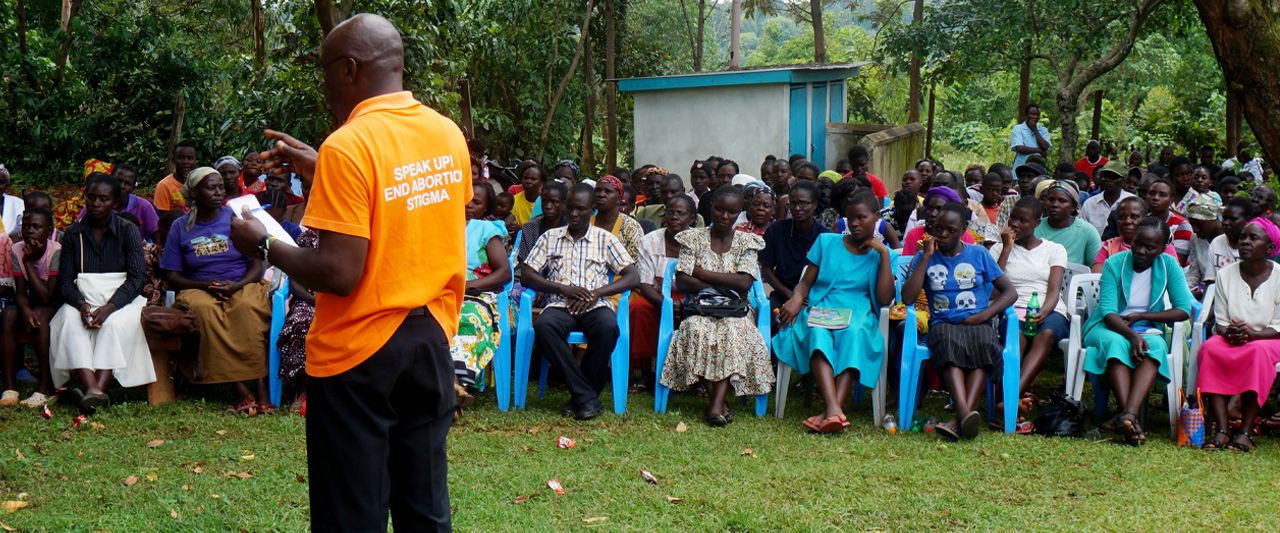
One of the best parts of my trip was in Busia County, where we took part in a community dialogue meeting at a local Pentecostal church. Participants included community elders, pastors (below right: John Akwabi, pastor Baptist church; Rev. Ernest Kuta, overseer, Church of God; Rev. Jophias Okumu of the Anglican church; and Rev. Jonson Bukachi, also from the Church of God) young people, teachers, parents, grandparents, adult community members, and county government leaders.
Ipas works with several community-based organizations to organize and facilitate these meetings. Above, community leader Joseph Amani, wearing a shirt with a fabulous message, “Speak up! End abortion stigma,” addresses the crowd.
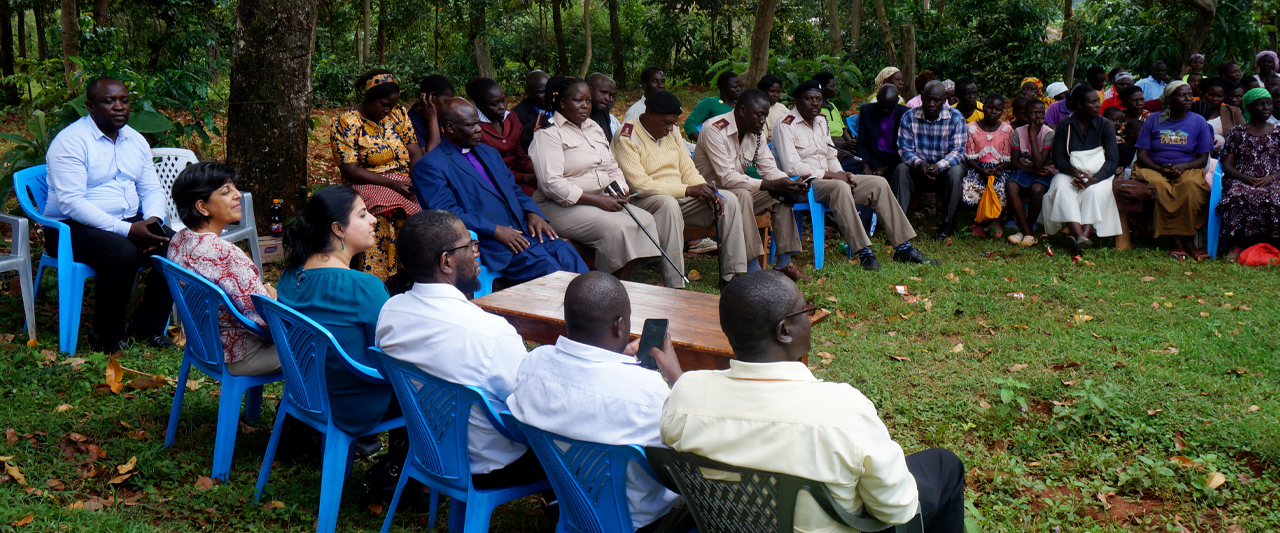
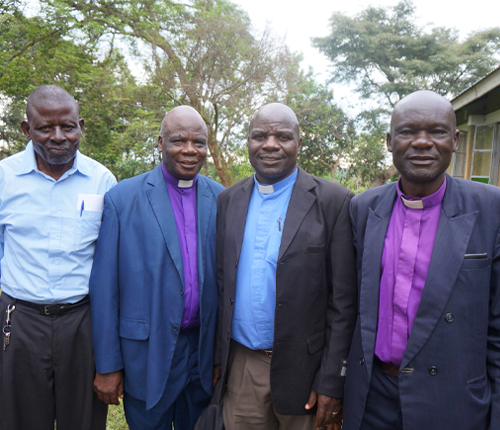
We began (and ended) the meeting with a prayer and then the attendees split into two groups (young people and adults) to talk about the root causes of and potential solutions for unintended pregnancy and unsafe abortion, including teen pregnancy; incest, rape and sexual assault; as well as deaths from unsafe abortions.
The groups noted several causes of teen pregnancy, including poverty, child labor, transactional sex, substance abuse, and lack of information on sexual and reproductive health that often lead to school dropouts, abortions, early marriage, sexually transmitted infections, and, in some cases, death. They also agreed that several solutions could create positive change, including: avoiding child labor, using contraception, ensuring rape is legally punished, providing more support for abortion providers and ensuring abortion services are closer to where people live. There was widespread support for religious leaders to provide guidance through a network of churches that champion sexual and reproductive health care. One religious leader even spoke up to say that he wanted to ensure abortion care was safe and accessible—because he didn’t want to see any more deaths in his congregation.
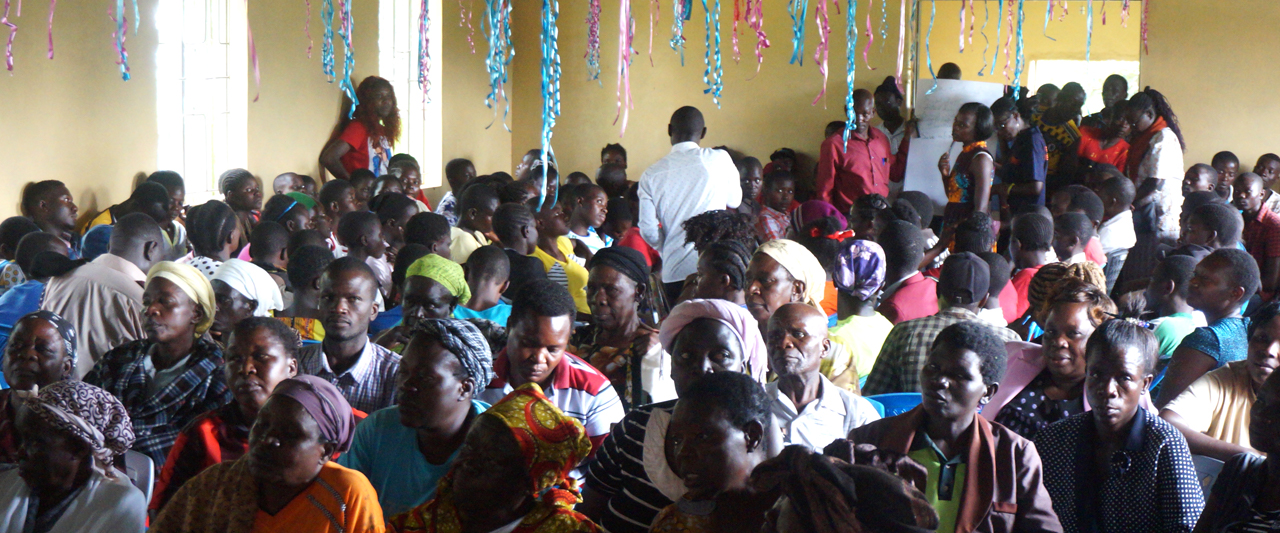
For the past three years, through meetings like this, Ipas and multiple partners have delivered a key message—and one that I wholeheartedly support and work for every day: Breaking the silence around abortion is important and can save lives.
I left Kenya feeling hopeful about the progress being made in communities where real social change occurs. While abortion and contraception continue to be embroiled in controversy at the political level, in real life people of all ages need and deserve comprehensive reproductive health care, including safe abortion. The more things change, the more they stay the same. Happy new decade!
For more information, contact [email protected].



